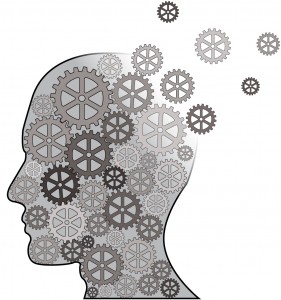Recent efforts by Professor Christopher Ralston, Psychology, and the Grinnell student group Active Minds are helping to address stigma and reduce barriers to receiving treatment for mental illnesses within the campus and greater Grinnell community.
The psychology department has also been working to destigmatize mental illness and reduce barriers to treatment for citizens. Three years ago, Ralston began a series of surveys as part of his Abnormal Psychology curriculum to better understand stigma within the greater Grinnell community.
“I started to wonder about different types of learning experiences students could have where we start to translate what we learn in class and what we learn in the psychology major towards solving local and or community problems,” he said. “I wanted to basically take psychology outside of the classroom into the community.”
Working in collaboration with the Center for Careers, Life and Service and the Poweshiek County Mental Health Center (PCMHC), Ralston designed a survey to gain information about local stigmas and barriers to receiving treatment for mental illness.
PCMHC closed in 2013, but since then Grinnell Regional Medical Center (GRMC) has joined Ralston’s efforts. The information provided by Ralston’s community survey has produced 24 reports over the last three years.
Ralston has yet to start this year’s surveys with his Abnormal Psychology class, but the past three years have revealed significant data regarding the Grinnell community’s attitude and actions towards mental illnesses. The survey found that structural, societal and personal stigmas all exist within the community.
“Stigma is a big term and within stigma there is a lot of different things happening so we can think about stigma from a structural perspective … what are the behaviors of organizations, the rules of organizations that limit access to service?” Ralston said. “In other words, what are the common stereotypes and certain prejudices that lead to certain discriminatory or oppressive behaviors on the part of society?”
Grinnell’s elderly population is particularly susceptible to stigma, facing both structural and personal barriers.
“There’s definitely stigmas and I think sometimes people unfortunately stigmatize themselves,” said Julie Wendl, the director of Station Clubhouse, a local center for adults with chronic mental illness.
Fortunately, Ralston and his Abnormal Psychology students have used the data to provide the community partners with suggestions on how to improve facilities and reduce these barriers.
“This current semester GRMC is starting to adopt some of the things that we proposed, not in whole, but in parts, and that’s pretty exciting,” Ralston said.
Ralston said he hopes that in the future, students will be able to directly assist in implementing their programs at GRMC.
“They [GRMC is] picking things that they think they can implement by themselves currently and we will decide going forward [if] there are ways that they can harness our students to implement some of these programs,” Ralston said.
With the help of the information provided by Grinnell’s students, GRMC is currently working to reshape its media campaign to make treatment information more accessible.
Local independent social workers are making use of the data as well to provide services specifically for the geriatric population. Area nursing homes are using the suggestions of Grinnell students to increase access and engagement from their patients.
Ralston said he believes that these efforts are beginning to change negative attitudes towards those affected by mental illness and seeking treatment.
“I don’t have the data to support change over time, but I … believe that we are seeing more sensitivity, more acceptance and more normalizing of a person’s experience over time,” he said.
The improvement of mental health facilities will provide benefits for both community members and students.
“I think we are really in the early stages of defining what form those things will take, but I think that any time an organization—in this case GRMC—is proactively trying to reduce barriers and proactively trying to reduce things that get in the way of people getting help when they need it, I can’t imagine that [it] wouldn’t lead to benefits for students,” Ralston explained.
On campus, students in Active Minds have been working to destigmatize mental illness through their programming. This year, they are also hoping to engage with the greater Grinnell community. Co-president Emma Falley ’15 expressed her desire to move off campus with their efforts.
“There is a lot of cool things going on campus, but if we can make a larger impact, then that’s wonderful and more exciting,” she said.
Active Minds has been working in conjunction with Vice President for Student Affairs Iulia Iordache ’15 to inform students about the resources that Student Health and Counseling Services (SHACS) has to offer as well as provide them information about resources off campus. Falley also hopes to work more closely with the psychology department in order to maximize their impact.
“One of our goals this year is to start collaborating more with PSYCHI and SEPC because it is an untapped resource that hasn’t been used in the past,” Falley said.
Ralston insisted that student engagement is key in addressing these issues within the campus and greater Grinnell communities.
“I think we are in a very unique place. We’re at a college that brings very bright, motivated students who are … socially conscious and have a social justice orientation,” Ralston said. “These are the people who are going to make a difference in the world, so why not harness that energy now while they’re here.”
























































